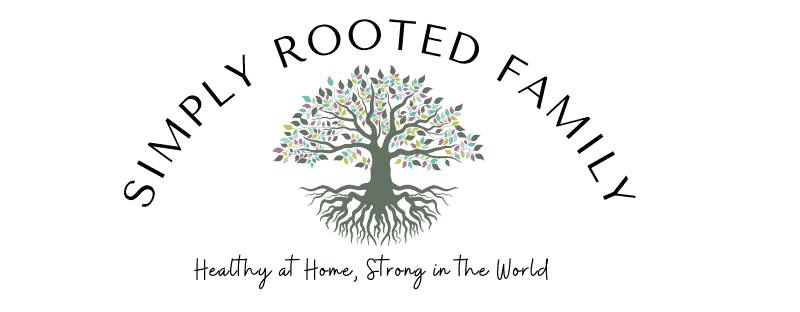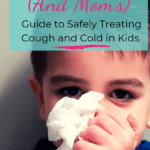Do you feel like your kids have constant coughs and runny noses? Do you feel wiping noses could count as your full-time job? Do you feel like your family members are playing a game of cold-tennis as they pass the colds back and forth, then back again.
On average, kids get up to 8 colds a year! Studies suggest that colds account for 30% of all absenteeism from school.
Cold symptoms often last for around 7-10 days and include:
- Runny nose that often starts clear and can later progress to a thick greener color
- Low fever (101-102 degrees Fahrenheit)
- Cough or sneezing
- Lack of appetite
- Having the ‘chills’
I don’t mean to brag, but I consider runny noses to be an area of expertise for me. I have been a pharmacist for 10 years and have 3 children (all attended daycare), so I know my way around cough and cold treatments. Still, nothing here should ever override anything your provider or pediatrician told you. You must listen to your doctor!
According to the American Academy of Pediatrics (AAP), at the start of a cold, call the doctor if your child:
- Is 3 months older or younger
- Child’s nose or ribs suck in with each breath or the lips or nails turn blue (show signs of decreased oxygen)
- Temperature is over 102 degrees Fahrenheit
- Has ear pain
- Is very sleepy or cranky
Colds and coughs can usually be treated at home with over-the-counter products or home remedies, but can sometimes progress to infections that need medical attention. You need to closely monitor the symptoms to make sure they aren’t getting worse. It is important to know what treatments options you have and, most importantly, when to call the doctor.
Treating the Cough or Cold
Commonly, parents get frustrated when they bring their children to the pediatrician and they are sent home empty handed with the diagnosis of a cold. The fact is, colds are viral infections, not bacterial. Antibiotics can only fight bacterial infections; therefore, taking an antibiotic for a virus would be ineffective and only put your child at risk for unnecessary side effects. Viral infections include flu and colds. Bacterial infections that require antibiotics include things such as strep throat and bacterial ear infections.
Luckily, if you or your child have a cough or cold, there are many things you can do to relieve symptoms while you wait for the virus to run it’s course.
Home Remedies
For all children, especially those preschool age and younger, home remedies are key. Ensure your child is comfortable and getting plenty of rest. Also, fluids are very important, so make sure they are hydrated.
Set a humidifier up in their room. I recommend the cool mist humidifiers. They are often more effective than a warm mist humidifier, and they are a lot safer! The warm mist humidifiers can get very hot, so if you chose to use one make sure you are keeping it safely away from your child. We use the following humidifier in my child’s room. It is quiet and it has an automatic shut-off option.

Saline nose drops are a must for colds. It is a harmless, drug-free solution that can clean out the child’s nose. It can help loosen up mucus and clear the nasal passages. Any saline drop or spray will work the same; therefore, I always go with the generic options.

Now, don’t judge me until you have tried this. For younger kids who can’t effectively blow their nose, the NoseFrida can be a mom’s best friend (if you like friends that suck up snot- no judgement here). I was very hesitant to try or recommend this product until my sister brought it over. It is sanitary and effectively clears the nose! You just insert one end into the child’s nostril and suck through the tube. The mucus collects in a little tube (don’t worry, it will NOT end up in your mouth!)
Honey has actually been shown to be an effective treatment for coughs. Studies have even shown that honey is better than some over-the-counter cough medicines. It can help thin the mucus and loosen the cough. Never give honey to children until the age of 1, but if a child is above 1 year old you can try giving them honey (half a teaspoon- whole teaspoonful).
Over-the-counter products
There is no cure for a cold, but there are treatments to help ease the symptoms and make your child more comfortable.
Keep in mind that for younger children, pre-school age or younger, treatments such as antihistamines, decongestants, and cough medicines are not recommended without first speaking to a doctor, and often not very effective.
For all ages, acetaminophen and ibuprofen can be used to relieve fever or discomfort in a child. Check with your pharmacist or physician if you are unsure what does to give.
Vicks vapor rub can also help sooth cough and cold symptoms, and it best to be applied to the chest of children 2 and older.

Typically, cough and cold medicine should only be used in children above 6 years old, unless recommended by the doctor. For these children, antihistamines, such as diphenhydramine, or a milder version- loratadine, can be used to dry up some drainage. These products can make some children drowsy, so be cautious of what time of the day you are giving it to them. Decongestants, such as pseudoephedrine, can be found behind the pharmacy counter. Decongestants clear the nose out, but be aware that it can cause a child to feel very hyper.
Also, be aware that some children have the OPPOSITE effect from these medications. For example, studies show that 7-10% of children become hyper on Benedryl so I try to avoid products like this when possible.
For older children, cough suppressants (stop cough) and expectorants (break up mucus), are also available over-the-counter.
Interestingly, studies have suggested that honey is actually more effective that store bought cough medicine in treating coughs. Children over 1 year old can have 2 to 5 ml of honey to help with coughing.
It is important to remember as you are treating the cough and cold, it typically lasts about a week, and it has to run it’s course. With that said, there are times when you need to get the pediatrician involved.
When to Call the Doctor
Sometimes, with constant mucus and drainage, the symptoms could worsen or the cold could turn into a bacterial infection. It is important to monitor your child closely and know when you call the doctor.
A cold could turn into an ear infection, pneumonia, bronchitis, or other conditions that require medical intervention.
Call the pediatrician if:
- The cough lasts more than a week
- Nasal mucus lasts longer than 10 to 14 days
- A fever persists or worsens
- The child starts to complain of ear pain or throat pain
Most importantly, you know your child. It is better to be safe and get them checked out if you feel they are getting worse or something doesn’t seem right. I can’t tell you how many times I had my children ear’s checked by the pediatrician to role out an ear infection. About 90% of those times, their ears were perfect and it was just a cold; however, there were times when the cold did progress to an ear infection.
Summary
If you have children, you no doubt have or will experience cold symptoms. Make sure your children get a flu shot. Also, washing hands frequently, especially in the winter months, can help prevent colds. The best methods to treat the cold are rest and fluids; however, monitor your child along the way for signs that they need to be seen by a pediatrician.
- 9 Simple Ways I Cured My Anxiety Without Medication (and Why it Worked)
- How to Respond When Your Kid Wants to Quit a Sport or Activity
- For the Mom Who Finds the Idea of Self-Care Exhausting
- Safely and Effectively Treating Coughs and Cold in Kids
- Ultimate Guide to Treating Dry Skin in Kids
If you found this helpful, share it!



Jomar Allen Enecio
Sunday 6th of January 2019
very cool. this is absolutely right!
TheKitchenDoc
Saturday 5th of January 2019
Great advice. Ginger and honey concoction is my go to for the kids.
Rupal Srivastava
Wednesday 26th of December 2018
such an important topic. thanks for sharing.
Jeferson
Tuesday 25th of December 2018
Definitely fluid therapy is a must at all times.......and yes.....humidifier...... Or ionizer or anything to clean the air as it is contaminated by virus and bacteria alike. ..
Emilio Marcos Sierra
Monday 24th of December 2018
Thanks for sharing this article! Can imagine its very stressful with a young child and a bad cough!